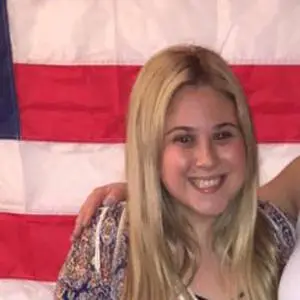When my brother, Reed, was 18 months old, he had his first allergic reaction. My mom and dad didn’t know what was happening, but they knew something was wrong. My brother out of nowhere turned gray. His eyes started to roll into the back of his head. This was after my parents gave him cold sesame noodles from a local Chinese restaurant. I was either three or four at the time, but I vaguely remember that night and being rushed to a family member’s house so my brother could go to the hospital. We didn’t own any EpiPens.
After that, my brother was diagnosed with a peanut allergy. He’s one of the 15 million Americans that have a food allergy, according to FARE. That one night in 1999 was the first time, but wouldn’t be the last time that he had an allergic reaction.

For as long as I can remember, we have always had a supply of EpiPens in our house. Most EpiPens come in a box with 2 actual pens containing epinephrine, a life saving form of adrenaline that will stop anaphylaxis, and one practice pen. My mom carries at least one EpiPen in her bag, and public schools require a student with an allergy to have at least two of the auto-injector devices in the nurses office.
Last year while I was walking to class, I got a phone call from my dad. He told me he was meeting my mom at the hospital. Reed had an allergic reaction at school and was being taken by ambulance with the Principal to the local hospital.

My dad said that my brother had eaten a granola bar without reading the label to see if there were peanuts in it. My 18-year-old brother, who has been allergic basically his whole life, made a rookie mistake. He felt funny in his gym class and didn’t go get help until a girl convinced him to go to the nurse’s office.
When Reed arrived at the nurse’s office, the two nurses were arguing over who should be the one to administer the EpiPen. If someone is having an allergic reaction, every second matters. Reed took control of the situation and stabbed himself in the thigh with the EpiPen, hitting an artery in his leg in the process, but at least someone had the sense to administer it.
My family was very lucky that day. We had stopped using Auvi-Q, another brand of an epinephrine injector, a few weeks before because it was recalled. My mom was able to get a prescription for EpiPens for my brother and had them in the school right away.

Since Auvi-Q was recalled, Mylan, the pharmaceutical company that produces EpiPens, raised the price to $600 for a two-pack. When CEO Heather Bresch signed off on this, her salary soared to over $18 million.
There are thousands of people in this country who don’t have adequate health insurance. Even with health insurance covering a portion of the price, EpiPens are not cheap. With our health insurance, we’re still paying $75 for each box of EpiPens. For my family, having EpiPens is a no brainer. We know it works and having them provides a sense of security.
What happens though when a family cannot afford this life-saving device? What happens when a child goes into anaphylactic shock at their elementary school but the family couldn’t afford the required two EpiPens? The nurses cannot administer someone else’s EpiPen and before you know it, it’s too late.

As someone who is personally affected by this, I think it’s beyond frustrating that the price of EpiPens has skyrocketed. Bresch has shown little to no remorse about her decision, a decision that has the potential to be fatal. It’s absurd that restaurants and schools can be more accommodating to food allergies than a pharmaceutical company.
If Reed didn’t have an EpiPen, this article would have been very different. Preventing and treating an allergic reaction is easy, but for one person to make a decision that could cost someone their life, that’s mind boggling.


